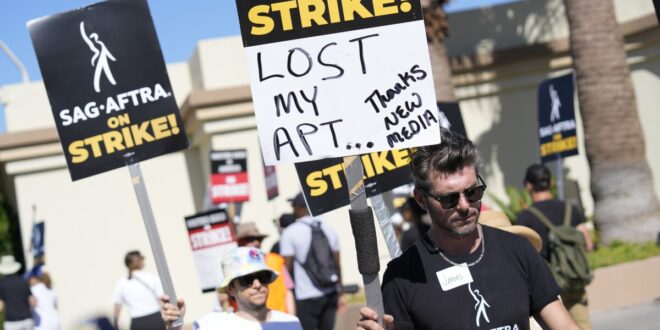Controversy Surrounding Artificial Intelligence in Hollywood
Despite the controversy surrounding artificial intelligence in Hollywood, multiple entertainment companies responded to a continuing industry-wide strike by listing job openings targeted toward AI specialists.
While actors and screenwriters are concerned about better pay and working conditions, SAG-AFTRA and WGA members are especially worried about AI coming for their jobs in the near future. According to the labor unions, studios are planning on replacing the creative work done by human actors and writers, effectively making both obsolete in the entertainment business.
Entertainment Companies Hiring AI Specialists
Netflix, Disney, and Sony are among the major companies looking to hire AI experts to incorporate the technology into their business models for positions that come with six-figure salaries, Fox Business reported.
For example, Netflix posted four AI-related job listings, one of which pays anywhere between $300,000 and $900,000, according to the streaming company’s website. For that cost, the AI product manager role involves “[defining] the strategic vision” for Netflix’s machine learning platform and working to “increase the leverage” of that platform, among other responsibilities.
Additionally, Disney and Sony have similar roles that come with six-figure salaries, albeit for much less than the high end that the Netflix position pays.
Actor’s Concerns and CEO’s Response
Earlier this week, actor Bryan Cranston directly called out Disney CEO Bob Iger for adopting AI.
“We will not be having our jobs taken away and given to robots,” Cranston said. “We will not have you take away our right to work and earn a decent living.”
Iger has made public comments about the advanced technology in recent months, admitting he remains cautiously optimistic about its role in the entertainment industry.
“We’re already starting to use AI to create some efficiencies and ultimately to better serve consumers,” Iger said in May. “But it’s also clear that AI is going to be highly disruptive, and it could be extremely difficult to manage, particularly from an IP management perspective.”
 Mind Uncharted Explore. Discover. Learn.
Mind Uncharted Explore. Discover. Learn.




